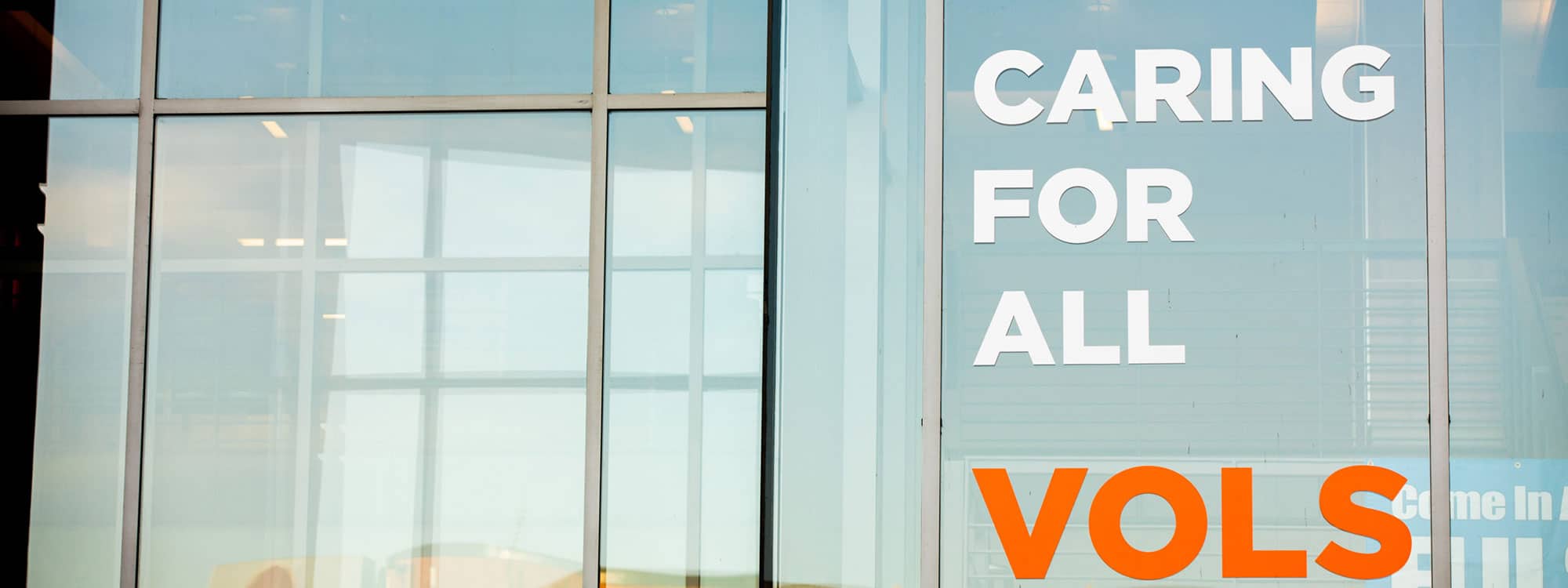Contributions from Vol2Vols Peer Health Educators
The start of a new (or first) semester of college is full of excitement and new opportunities. You might be having a blast, making new friends, and getting involved on campus. But the start of the semester can also bring around other thoughts and feelings. Just because you’re excited doesn’t mean that can’t be full of a mix of other emotions, like stress and anxiety. You might also be feeling lonely or homesick.
Know that you’re not alone in those feelings and there are very likely other students feeling the same. In fact, a few of your fellow Vols helped put into words how they have coped with feeling stressed or anxious.
Go for a Walk Outside and Spend Time on Self-Care
Taking time away from screens and getting outside can help you destress and reduce anxiety. Even a simple 15-minute walk around your residence hall or neighborhood can clear your mind and reduce stress.
 Self-care is important to maintaining a healthy relationship with yourself. It means doing things to take care of our minds, bodies, and souls by engaging in activities that promote well-being and reduce stress and can enhance our ability to live fully, vibrantly, and effectively. The practice of self-care also reminds both you and others that your needs are valid and a priority. Here are some examples of self-care activities:
Self-care is important to maintaining a healthy relationship with yourself. It means doing things to take care of our minds, bodies, and souls by engaging in activities that promote well-being and reduce stress and can enhance our ability to live fully, vibrantly, and effectively. The practice of self-care also reminds both you and others that your needs are valid and a priority. Here are some examples of self-care activities:
- Clean your room or apartment
- Exercise
- Get a massage
- Meditation
- Mindfulness exercises
- Play a game
- Practice deep breathing
- Read
- Take a bath
- Watch TV or a movie
- Yoga
Try Deep Breathing Strategies and Anxiety Exercises
Rapid, shallow, erratic breathing is a common response to stress. Slow, deep, regular breathing is a sign of relaxation. You can learn to control your breathing to mimic relaxation, which will actually be relaxing.
Here’s how deep breathing exercises work:
- Breathe in slowly and deeply, pushing your stomach out so that your diaphragm is put to maximal use.
- Hold your breath briefly.
- Exhale slowly, thinking “relax.”
- Repeat the entire sequence five to 10 times, concentrating on breathing deeply and slowly.
There are countless anxiety exercises that can help you at a moment’s notice. One of the most popular is the 3-3-3 rule. Here’s the idea: Look around you and name three things you see. Then, name three sounds you hear. Finally, move three parts of your body — your ankle, fingers, or arm. Whenever you feel your brain going 100 miles per hour, this mental trick can help center your mind, bringing you back to the present moment.
If you find yourself having a panic attack, remind yourself: “I’m having a panic attack, but it’s harmless, it’s temporary, and there’s nothing I need to do.”
Reach Out to the Counseling Center
The Student Counseling Center is here to help you by promoting the psychological, educational, and social well-being of UT students. The Counseling Center is the university’s primary facility for mental health services for students and provides short-term assistance for students. They offer individual, group, and couple’s therapy.
Following a brief assessment, you and the therapist will collaborate to determine the most effective service to address your needs.
Attending Office Hours and Tutoring Sessions
If classwork and grades are at the root of your stress, there are plenty of options to help you. Start by talking to your professors and attending office hours. Talk to your professor about whatever topics seem to be causing stress. You can also attend tutoring sessions or meet with your academic success coach.
